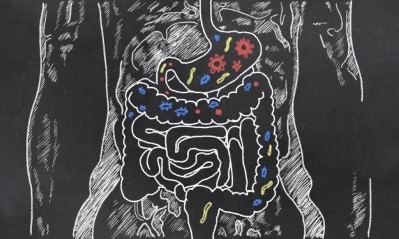Gut bacteria could turn choline into clot-raising compound

Choline is a nutrient found in a variety of foods including meat, eggs and milk as well is taken in supplement form, which are said to help with memory, learning and concentration.
The results of the study mark the first time that direct evidence has been unearthed in humans that consuming excessive amounts of the nutrient raises the levels of the bacteria-produced compound called trimethylamine N-oxide (TMAO) as well as causing platelets to clump together and form clots.
However the Council for Responsible Nutrition (CRN) has said it is inappropriate for such 'sweeping conclusions' to be made from a research letter containing little information.
Previous studies have shown that high blood level of TMAO are associated with an increased risk of heart disease including heart attacks and strokes in humans.
The new research follows on from recent studies which have shown that feeding animals choline-supplements diets raised the risk of clotting.
More aggressive cardiovascular reduction efforts
Speaking to NutraIngredients, Dr Stanley Hazen, one of the study’s authors, called for “more aggressive global cardiovascular disease risk reduction efforts” for those who have elevated levels of TMAO, including avoiding choline supplements unless prescribed.
The study, published in the American Heart Association’s journal Circulation, involved 18 volunteers (eight vegan or vegetarian and 10 omnivores) without or at risk of heart disease whose average age was 46 and who were 40 percent male.
The participants took supplements of 500 milligrams (mg) of choline bitartrate twice daily for two months. This compares to the average daily intake of around 302mg a day.
Research findings
Researchers found that blood levels of TMAO rose more than 10 times after taking choline supplements for one and two months in both vegans, vegetarians as well as omnivores.
The study also found the tendency of platelets to form clots in a laboratory test rose with choline supplementation.
Additionally, the study also found that taking aspirin helped reduce TMAO levels and reduce the risk of blood clot.
“This intervention study in humans provides yet additional evidence for a pathogenic role for TMAO in predisposing for risk of thrombotic event,” Hazen told us.
“It also shows low dose aspiring is something one can take if one has a high TMAO to reduce the TMAO, and reduce the risk of blood clot.”
Doctor Hazen’s advice for those with high TMAO is to try and reduce cardiovascular risk by exercising, dieting as well as cutting out read meat and increasing vegetarian meals options and avoiding supplements which contain choline unless prescribed.
“Foods that raise TMAO may increase your risk for clotting and thrombotic events. Unless prescribed by your doctor, avoid supplements with choline. A Mediterranean or vegetarian diet is reported to help reduce TMAO," he told us.
However, the CRN said the lack of information and limitations of the study "do not allow for meaningful conclusions to be drawn about the effect of dietary choline on cardiovascular disease, which is multifactorial and must be considered in the context of lifestyle, genetics, and environmental factors."
"Further, it is important to note that choline is an essential nutrient. Humans can synthesise choline only in small amounts; therefore, it is primarily obtained from the diet, including supplementation which allows for knowing exactly how much choline one is adding to the diet," it added.
Source: Circulation
Gut Microbe-Generated Trimethylamine N-Oxide From Dietary Choline Is Prothrombotic in Subjects
Authors: Weifei Zhu, Zeneng Wang, W. H. Wilson Tang, Stanley L. Hazen,








